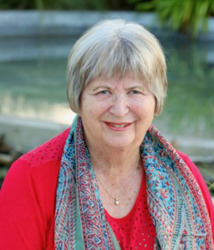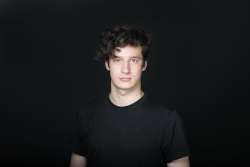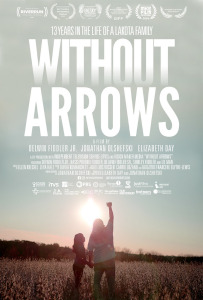Posted by Elena del Valle on June 30, 2025

Laura Moritz, senior loan originator, Classic Mortgage
Photo: Classic Mortgage, LLC
A podcast interview with Laura Moritz, senior loan originator, Classic Mortgage, is available in the Podcast Section of Hispanic Marketing and Public Relations, HispanicMPR.com. During the podcast, she discusses reverse mortgages for seniors with Elena del Valle, host of the HispanicMPR.com podcast.
According to her bio as senior loan originator at Classic Mortgage Laura has successfully originated more than $500 million of traditional and reverse mortgages, and over the past 35 years, she has assisted thousands of consumers with their mortgage needs. Growing up in a real estate family, Laura learned a great deal about the ins and outs of the industry at a young age. She is licensed in New York, New Jersey and Florida.
To listen to the interview, scroll down and click on the play button below. It is possible to listen by looking for “Podcast” then selecting “HMPR Laura Moritz” and downloading the MP3 file to your audio player. You can also find it on the RSS feed. To download it, click on the arrow of the recording you wish to copy and save it to disk. The podcast will remain listed in the June 2025 section of the podcast archive.
Posted by Elena del Valle on June 16, 2025

Tony D’Urso, author, Imen of Atlantis Bitten
Photo: Tony D’Urso
A podcast interview with Tony D’Urso, author, Imen of Atlantis Bitten, is available in the Podcast Section of Hispanic Marketing and Public Relations, HispanicMPR.com. During the podcast, he discusses how he became a fiction writer with Elena del Valle, host of the HispanicMPR.com podcast.
Tony is host of The Tony DUrso Show, a podcast that according to his bio “has amassed over 45 million downloads” in seven years. His fiction novel, The Imen of Atlantis: Bitten is set in a mythical land inspired by ancient maps of the Arctic. The book explores a powerful race of beings with extraordinary abilities, whose existence sparks a dangerous greed for gold and power among humans.
To listen to the interview, scroll down and click on the play button below. It is possible to listen by looking for “Podcast” then selecting “HMPR Tony D’Urso” and downloading the MP3 file to your audio player. You can also find it on the RSS feed. To download it, click on the arrow of the recording you wish to copy and save it to disk. The podcast will remain listed in the June 2025 section of the podcast archive.
Posted by Elena del Valle on June 2, 2025

Eduardo Sigal, author, Resisting Recession
Photo: Eduardo Sigal
A podcast interview with Eduardo Sigal, author, Resisting Recession, is available in the Podcast Section of Hispanic Marketing and Public Relations, HispanicMPR.com. During the podcast, he discusses how to master the real estate mindset with Elena del Valle, host of the HispanicMPR.com podcast.
Eduardo is a seasoned real estate investor and entrepreneur. His philosophy focuses on stable income, dependable cash flow, and economic strength, particularly in uncertain economic times. Drawing from decades of family expertise and his own successful career, he seeks to empower investors to build resilient, intergenerational wealth. As the founder of Signet Investments and host of The Signet Podcast, Eduardo champions a long-term approach that “prioritizes safety, growth, and sustainability, offering strategies for thriving amidst market volatility.”
To listen to the interview, scroll down and click on the play button below. It is possible to listen by looking for “Podcast” then selecting “HMPR Eduardo Sigal” and downloading the MP3 file to your audio player. You can also find it on the RSS feed. To download it, click on the arrow of the recording you wish to copy and save it to disk. The podcast will remain listed in the May 2025 section of the podcast archive.
Posted by Elena del Valle on May 12, 2025

Janet Levine, author, Liv’s Secrets
Photo: Janet Levine
A podcast interview with Janet Levine, author, Liv’s Secrets, is available in the Podcast Section of Hispanic Marketing and Public Relations, HispanicMPR.com. During the podcast, she discusses her book with Elena del Valle, host of the HispanicMPR.com podcast.
A South African born American author, activist and entrepreneur Janet is the author of six books including Inside Apartheid and the Ennegram Intelligences. Her works have been nominated for the Grawemeyer Education Award and the 2023 National Book Award in Fiction. A seasoned journalist she has contributed to The New York Times Magazine and The Yale Review, and she has reviewed books for the New York Journal of Books.
To listen to the interview, scroll down and click on the play button below. It is possible to listen by looking for “Podcast” then selecting “HMPR Janet Levine” and downloading the MP3 file to your audio player. You can also find it on the RSS feed. To download it, click on the arrow of the recording you wish to copy and save it to disk. The podcast will remain listed in the May 2025 section of the podcast archive.
Posted by Elena del Valle on April 28, 2025
This article and interview were created without AI-assisted technologies.

Aras Nazarovas, information security researcher, Cybernews
Photo: Cybernews
A podcast interview with Aras Nazarovas, information security researcher, Cybernews, is available in the Podcast Section of Hispanic Marketing and Public Relations, HispanicMPR.com. During the podcast, he discusses banking and blockchain security with Elena del Valle, host of the HispanicMPR.com podcast.
Aras specializes in cybersecurity and threat analysis. He investigates online services, malicious campaigns, and hardware security while compiling data on the most prevalent cybersecurity threats. According to his bio he, along with the Cybernews research team, have uncovered significant online privacy and security issues impacting organizations and platforms such as NASA, Google Play, and PayPal. According to his bio the Cybernews research team conducts over 7,000 investigations and publishes more than 600 studies annually, designed to help consumers and businesses better understand and mitigate data security risks.
To listen to the interview, scroll down and click on the play button below. It is possible to listen by looking for “Podcast” then selecting “HMPR Aras Nazarovas” and downloading the MP3 file to your audio player. You can also find it on the RSS feed. To download it, click on the arrow of the recording you wish to copy and save it to disk. The podcast will remain listed in the April 2025 section of the podcast archive.
Posted by Elena del Valle on April 7, 2025

Peter Amato, Ph.D., founder, Inner Harmony Wellness Centers
Photo: Peter Amato
A podcast interview with Peter Amato, Ph.D., founder, Inner Harmony Wellness Centers, is available in the Podcast Section of Hispanic Marketing and Public Relations, HispanicMPR.com. During the podcast, he discusses nutraceuticals with Elena del Valle, host of the HispanicMPR.com podcast.
Peter is a Board-Certified Doctor of Natural Medicine. According to his biography for nearly 30 years, he has been creating personalized wellness plans for patients of all ages resolving a wide range of chronic conditions and diseases through advanced modalities and targeted nutraceuticals. He is co-founder with Andrew Weil, M.D. and past chair of the National Integrative Medicine Council and formed the National Centers for Complementary and Alternative Medicine within the National Institutes of Health in Washington, D.C. According to his biography he has served as a consultant for the American Cancer Society and the Centers for Disease Control (CDC).
He authored Soul Silence: The Path of Awakening and The New Medicine: Moving Beyond Our Crisis of Perception. He offers holistic wellness seminars at the rural Inner Harmony Institute for Living for participants seeking to “overcome trauma, heal emotionally and physically and recover from addiction.”
To listen to the interview, scroll down and click on the play button below. It is possible to listen by looking for “Podcast” then selecting “HMPR Peter Amato, Ph.D.” and downloading the MP3 file to your audio player. You can also find it on the RSS feed. To download it, click on the arrow of the recording you wish to copy and save it to disk. The podcast will remain listed in the April 2025 section of the podcast archive.
Posted by Elena del Valle on March 10, 2025
This article and interview were created without AI-assisted technologies.

Aras Nazarovas, information security researcher, Cybernews
Photo: Cybernews
A podcast interview with Aras Nazarovas, information security researcher, Cybernews, is available in the Podcast Section of Hispanic Marketing and Public Relations, HispanicMPR.com. During the podcast, he discusses DeepSeek’s cyberattack and how insecure artificial intelligence technology threatens business leaders and organizations with Elena del Valle, host of the HispanicMPR.com podcast.
Aras specializes in cybersecurity and threat analysis. He investigates online services, malicious campaigns, and hardware security while compiling data on the most prevalent cybersecurity threats. According to his bio he, along with the Cybernews research team, have uncovered significant online privacy and security issues impacting organizations and platforms such as NASA, Google Play, and PayPal. According to his bio the Cybernews research team conducts over 7,000 investigations and publishes more than 600 studies annually, designed to help consumers and businesses better understand and mitigate data security risks.
To listen to the interview, scroll down and click on the play button below. It is possible to listen by looking for “Podcast” then selecting “HMPR Aras Nazarovas” and downloading the MP3 file to your audio player. You can also find it on the RSS feed. To download it, click on the arrow of the recording you wish to copy and save it to disk. The podcast will remain listed in the March 2025 section of the podcast archive.
Posted by Elena del Valle on March 5, 2025
This article was written without AI-assisted technologies.

Without Arrows
Photo, video, screener: First Run Features
Following its premiere on PBS Independent Lens First Run Features released Without Arrows, a 93-minute 2025 documentary on moments in the life of a Lakȟóta family. Filmed over 13 years the documentary was scheduled for release February 2025 via Amazon and Apple streaming as well as DVD ($19.95). Scroll down to watch a short video trailer.
The film is in English peppered with words in Lakȟóta. It follows a family over three generations. At times it is difficult to make out the words of their dialogue. It centers on Delwin Fiddler Jr., a champion grass dancer from the Cheyenne River Sioux Tribe, who left his reservation as a young man and built a new life in Philadelphia. Ten years later he returned home to the Cheyenne River Sioux Tribe Reservation in South Dakota to fulfill his mother’s ambition and carry on his extended family’s legacy. Shirley Eagletail Fiddler, his mother, Delwin Fidder, Sr., his father, and his daughter Kassi Phoenix Fiddler are also featured.
Moving and sad at times Without Arrows is also hopeful. Family members appear in everyday settings and at home. Also as the seasons change the documentary features moments of dancing, family gatherings, burials and family conversations. It has an original score by Olivia Komahcheet.
Directed and produced by Elizabeth Day and Jonathan Olshatski Without Arrows received fiscal sponsorship from The Film Collaborative. It was a co-production of ITVS and Vision Maker Media. It also received support from Australian Independence Documentary Conference, Big Sky Pitch, Film Independent Documentary Lab, The Gotham, Hotdocs Deal Maker Program, Hotdocs Forum, Jihlava New Visions Forum, Minnesota Film Festival Pitch Competition; and grants from Ford Just Films, Philadelphia Foundation, Catapult Film Fund, Bertha Foundation, Economic Hardship Reporting Project, and Rowan University. The Corporation for Public Broadcasting and PBS also appear among the film credits.
Posted by Elena del Valle on February 24, 2025
This article and interview were created without AI-assisted technologies.

Jonathan George, CEO, Unleash Your Rockstar
Photo: Levi Walker
A podcast interview with Jonathan George, CEO, Unleash Your Rockstar, is available in the Podcast Section of Hispanic Marketing and Public Relations, HispanicMPR.com. During the podcast, he discusses personal branding with Elena del Valle, host of the HispanicMPR.com podcast.
Jonathan has devoted over two decades to crafting, positioning, and expanding celebrity personal brands. According to his bio his clients have collectively amassed over 150 million online followers; it also indicates that “his approach streamlines the process, enabling individuals to swiftly overcome self-doubt, gain clarity, and navigate the complexities of the digital age.”
To listen to the interview, scroll down and click on the play button below. It is also possible to listen by looking for “Podcast” then selecting “HMPR Jonathan George” and downloading the MP3 file to your audio player. You can also find it on the RSS feed. To download it, click on the arrow of the recording you wish to copy and save it to disk. The podcast will remain listed in the February 2025 section of the podcast archive.
Posted by Elena del Valle on February 19, 2025
By Nicholas Rossman*
Director
Anti-Fraud Programme
Mobile Ecosystem Forum (MEF)

Nicholas Rossman, director, Anti-Fraud Programme, Mobile Ecosystem Forum
Photo: Nicholas Rossman
Staying ahead of the curve is important in any business, but it is particularly crucial in the mobile sector. Here are ten of the key trends likely to shape the industry in 2025.
Artificial Intelligence and Machine Learning (AI/ML)
Impact: AI/ML is expected to have a profound impact on the mobile industry, leading to more personalised and intelligent app experiences. AI-powered smartphones with dedicated AI coprocessors that can run large language models completely offline are predicted to arrive. AI and ML will also transform customer service through AI-powered chatbots and virtual assistants.
Reasoning: The increasing availability of big data and advancements in AI/ML algorithms are driving this trend. AI/ML can help to improve user experience, increase engagement, and drive revenue.
Challenges: Concerns around data privacy and the need for ethical AI development are key challenges.
Click to read the entire Guest Article by Nicholas Rossman: Opportunities and Challenges for the Mobile Sector in 2025
*Author’s artificial intelligence statement: I used AI to do the research, correct grammar, flow and structure.


















